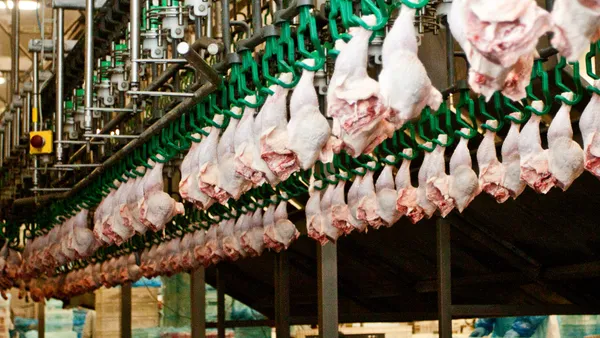Congress on Thursday passed legislation averting a partial government shutdown, funding the U.S. Department of Agriculture and other federal agencies into March.
The deal extends current spending levels, allowing the House and Senate more time to negotiate full-year spending bills for the fiscal year that began Oct. 1. The House approved the measure on a 314-108 vote, just hours after the Senate overwhelmingly passed it 77-18. President Joe Biden is expected to sign ahead of the weekend.
Lawmakers were up against a Friday night deadline to avoid a partial shutdown that would have threatened USDA's ability to dole out loans and grants. The extension will fund agriculture, transportation and select other programs through March 1, with other agencies able to run through March 8.
Notably, the deal declined to provide more money for the Women, Infant, and Children food assistance program, which faces a $1 billion shortfall. States are set to run out of money beginning at the end of March, as they have been instructed to spend at a faster rate over the past few months to ensure everyone eligible can receive benefits.
As of September 2023, around 6.7 million pregnant women, new mothers, babies and young children were enrolled in WIC. Major food companies and trade associations have urged lawmakers to fully fund the program, noting WIC "benefits local economies and supports local businesses in the food supply chain."
"The WIC food package not only provides nutritional benefits to participants, but also provides economic benefits to local producers, farmers, distributors, food retailers and communities across the nation," according to a letter signed by Danone, General Mills, and groups like the International Dairy Foods Association. "In one month alone, redemption of WIC foods drove more than $500 million in purchases across the United States."
Nearly 40% of U.S. infants participate in WIC, the USDA said, and a funding shortfall will likely push states to implement waiting lists for new applicants to reduce costs. In some cases, states could be forced to suspend benefits to current participants.
"The longer Congress puts off fully funding WIC, the greater the risk to mothers, babies, and children seeking nutrition and health support from the program," USDA said.











